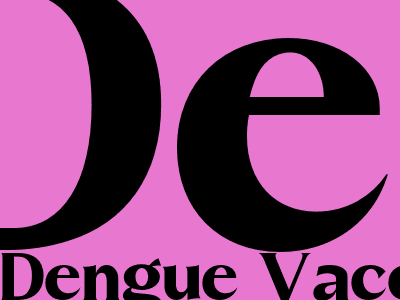Dengue Vaccine: A Comprehensive Guide
Understanding Dengue
Dengue is a mosquito-borne viral infection that can cause a wide range of symptoms, from mild fever to severe, life-threatening complications. The virus is primarily transmitted by the Aedes aegypti mosquito, which is found in tropical and subtropical regions worldwide.
Dengue infection is characterized by sudden onset of fever, severe headache, muscle and joint pain, and nausea. In more severe cases, it can lead to dengue hemorrhagic fever (DHF) and dengue shock syndrome (DSS), which can be fatal.
Dengue Vaccine Development
The development of a dengue vaccine has been a significant milestone in the prevention of this disease. The first dengue vaccine, Dengvaxia, was licensed in 2015. However, concerns about its safety and efficacy have limited its use.
Since then, several other dengue vaccines have been developed, including CYD-TDV (Dengvaxia), TAK-003 (Qdenga), and TV003/TV005 (Dengvaxia/Dengvaxia). These vaccines have shown promising results in clinical trials, offering protection against multiple dengue serotypes.
How Dengue Vaccines Work
Dengue vaccines work by stimulating the immune system to produce antibodies that recognize and neutralize the dengue virus. This protection is serotype-specific, meaning that a vaccine that protects against one serotype may not protect against others.
The current dengue vaccines are tetravalent, meaning they protect against all four dengue serotypes (DENV-1, DENV-2, DENV-3, and DENV-4). This broad protection is important because infection with one serotype does not provide immunity against the others.
Vaccine Efficacy
The efficacy of dengue vaccines varies depending on the vaccine and the population being vaccinated. In clinical trials, the tetravalent vaccines have shown efficacy ranging from 60% to 90% in preventing symptomatic dengue infection.
However, it's important to note that vaccine efficacy can be lower in areas where multiple dengue serotypes are circulating. Additionally, vaccine-induced immunity wanes over time, requiring booster doses to maintain protection.
Vaccine Safety
Dengue vaccines have been extensively studied for safety. The tetravalent vaccines have been shown to be generally safe and well-tolerated. Common side effects include pain, redness, and swelling at the injection site, as well as mild fever and headache.
However, there are concerns about the potential for rare but serious adverse events, such as liver damage and neurologic complications. These risks should be carefully weighed against the benefits of vaccination, especially in individuals with certain underlying health conditions.
Vaccination Recommendations
The World Health Organization (WHO) recommends dengue vaccination for people living in areas where dengue is endemic. The vaccines are particularly recommended for children and adolescents, who are at the highest risk of severe dengue infection.
Vaccination is not recommended for people who have had a previous severe allergic reaction to any component of the vaccine or who have a history of certain medical conditions, such as severe liver disease or impaired immune function.
Conclusion
Dengue vaccines are an important tool in the prevention of this serious and potentially life-threatening disease. The tetravalent vaccines have shown promising efficacy and safety in clinical trials, offering protection against multiple dengue serotypes.
However, it's crucial to consult with a healthcare professional to assess individual risks and benefits before making a decision about dengue vaccination. Vaccination should be part of a comprehensive approach to dengue prevention, including vector control and personal protective measures.

Comments